
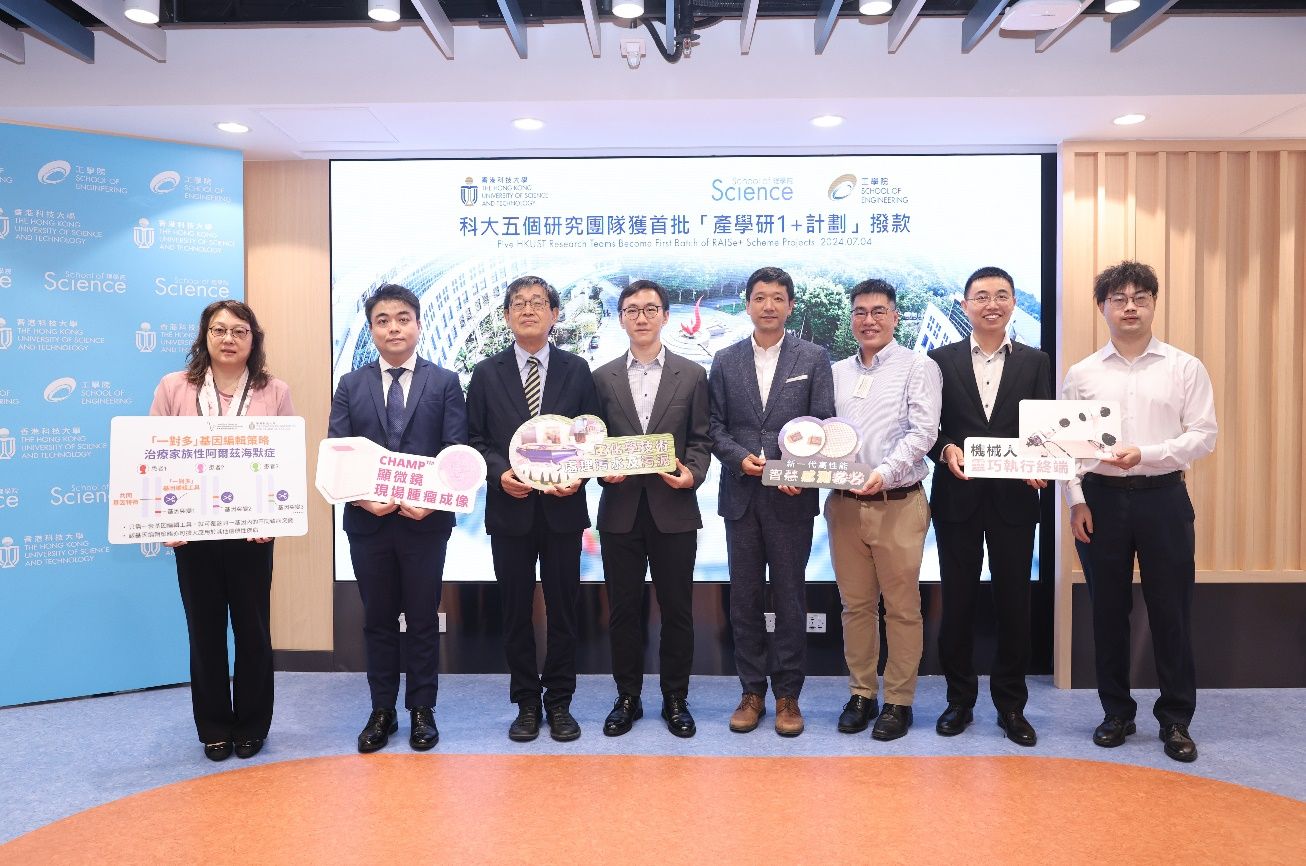
HONG KONG, July 5, 2024 - (ACN Newswire) - Five projects from The Hong Kong University of Science and Technology (HKUST) were among the first batch of 24 projects awarded funding under the “Research, Academic and Industry Sectors One-plus (RAISe+) Scheme” by the Innovation and Technology Commission of the Government. The new funding will help speed up commercialization of research discoveries that benefit the society, creating a win-win outcome among industry, academic, and research sectors. These research projects, led by professors at the HKUST School of Engineering and School of Science, cover a wide range of topics, including genome-editing, cancer tumor imaging, wastewater treatment, sensing chips, and artificial intelligence robots.
In no particular order, details of the projects:
Project 1: Genome-editing Strategy for Familial Alzheimer’s Disease Therapy
The research team at the HKUST and Hong Kong Center for Neurodegenerative Diseases has developed a novel “one-for-many” genome-editing approach for familial Alzheimer’s disease (FAD). This innovative strategy ablates the expression of the gene that carries distinct disease-causing mutations in different individuals using only a few tools, which is unfeasible with existing strategies.
This novel strategy can reduce levels of the pathological proteins that cause FAD. As a result, this approach has great potential as a long-lasting, disease-modifying treatment for FAD, which affects 2–3 million people worldwide and lacks effective treatments. It is also applicable to other familial diseases that afflict over 160 million patients worldwide. The technology will be licensed to a HKUST startup for clinical development and commercialization.
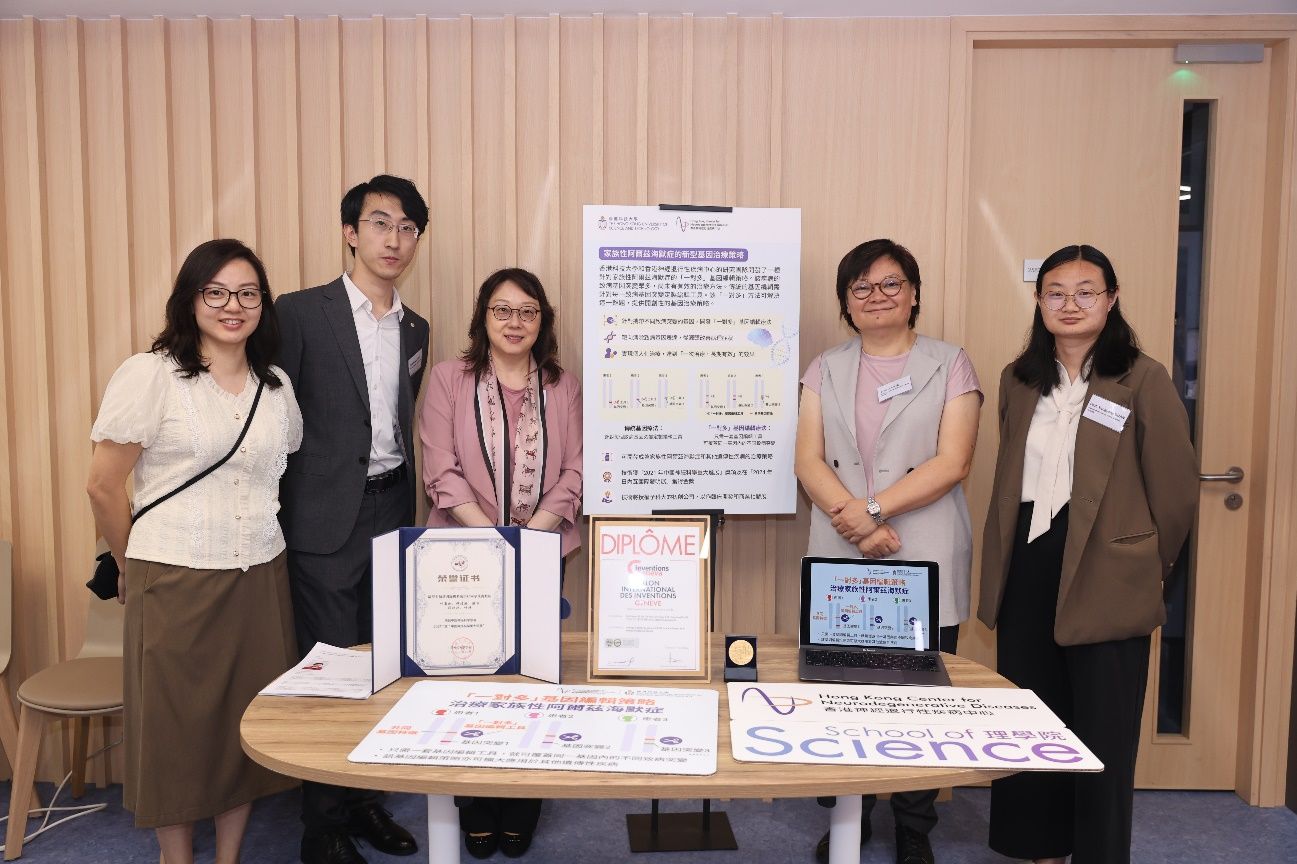
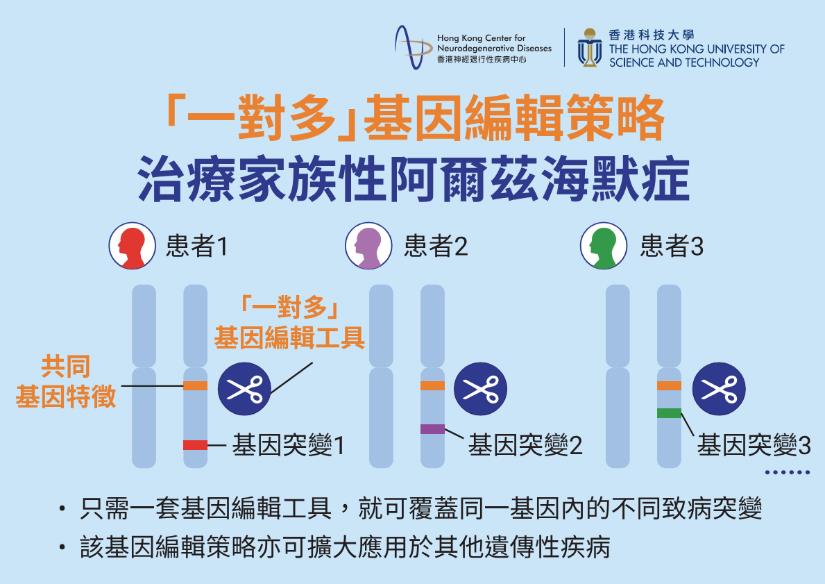
genome-editing approach for familial Alzheimer’s disease (FAD).
Project 2: Fast microscopic imaging to save time and medical resources
Prof. Terence WONG, Associate Professor of the Department of Chemical and Biological Engineering at the School of Engineering, led a research team to develop an advanced artificial intelligence (AI)-based microscopic imaging system named CHAMP (Computational High-throughput Autofluorescence Microscopy by Pattern Illumination), which revolutionizes the assessment of tumor tissue during cancer surgeries. Designed to enhance surgical precision on the spot, CHAMP allows direct and high-quality cancer cell visualization rapidly, minimizing the need for repeat surgeries and offering clinical and cost-effective benefits.
CHAMP enables the detection of cancer cells in just three minutes, with an accuracy of higher than 90% — comparable to the gold standard of the one-week conventional test. This is achieved by using ultraviolet (UV) light excitation to image the surface of the tissue at a specific wavelength. The CHAMP microscope first generates a greyscale image of the patient’s tissue sample. A deep learning algorithm the team develops will then transform the greyscale image into a histological image convenient for doctors’ instant interpretation, enabling them to make sure all cancer cells have been cut in the operation. More importantly, the CHAMP technology does not require any tissue processing. Therefore, it should apply to all organ types as a platform technology. The team has generated six related US provisional invention patents so far.
Prof. Wong has founded a MedTech start-up, PhoMedics Limited, to translate his research. The current focus is on the lung and breast cancer. Other than these, the team is also conducting tests on smaller scales on the liver, colorectal, kidney, skin, and prostate. With the support of the RAISe+ scheme, the team is preparing to launch a large-scale multi-center clinical trial in five hospitals, including Queen Mary Hospital and Prince of Wales Hospital in Hong Kong, and three hospitals on the Mainland — Peking University Shenzhen Hospital, the People’s Hospital of Guangxi Zhuang Autonomous Region, and Anyang Tumor Hospital.
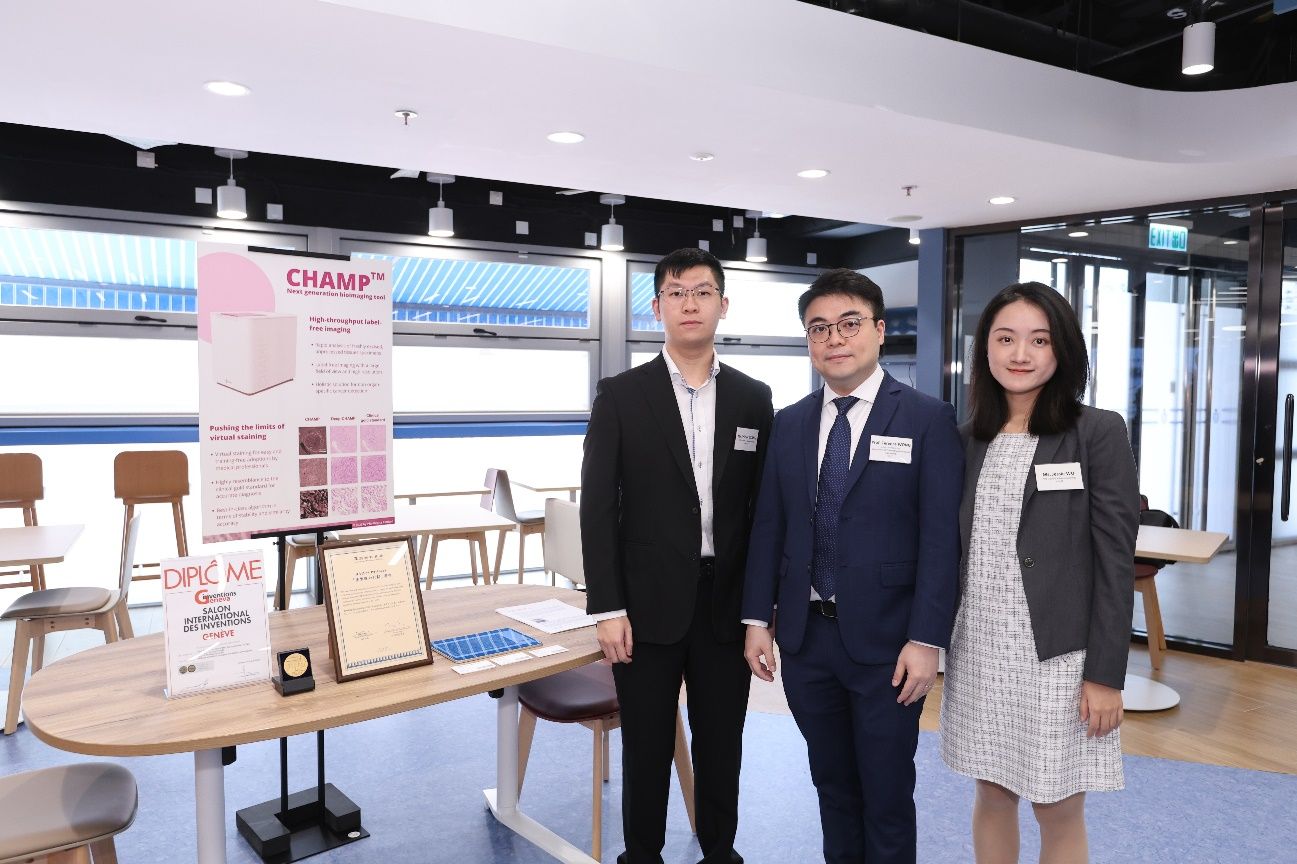

Project 3: Electrochemical technology for wastewater and sludge treatment
Prof. CHEN Guanghao, Chair Professor of the Department of Civil and Environmental Engineering at the School of Engineering, led a research team that has applied two electrochemical technologies for sludge and wastewater treatment.
For sludge management, sludge from sewage treatment plants produces highly toxic hydrogen sulphide (H2S) gas with a strong odor during the treatment process, which poses a great potential hazard. LEEO® was designed to eliminate H2S gas production through electrochemical oxidation, which removes toxins and odors while costing 20% less than existing technologies.
In addition, ECO® was developed to treat organic pollutants from landfills. By combining electrochemical and photochemical processes, ECO® improves degradation efficiencies and aims to reduce carbon emissions and cut costs by half than existing technologies.
The advantages of the patented LEEO® and ECO® are their fast and reliable performance, zero chemical addition, and absence of secondary pollutants.
The team has established ElequaNova Limited with the aim to putting these technologies into action. The team actively collaborates with the Drainage Services Department and the Environmental Protection Department to launch demonstration projects.
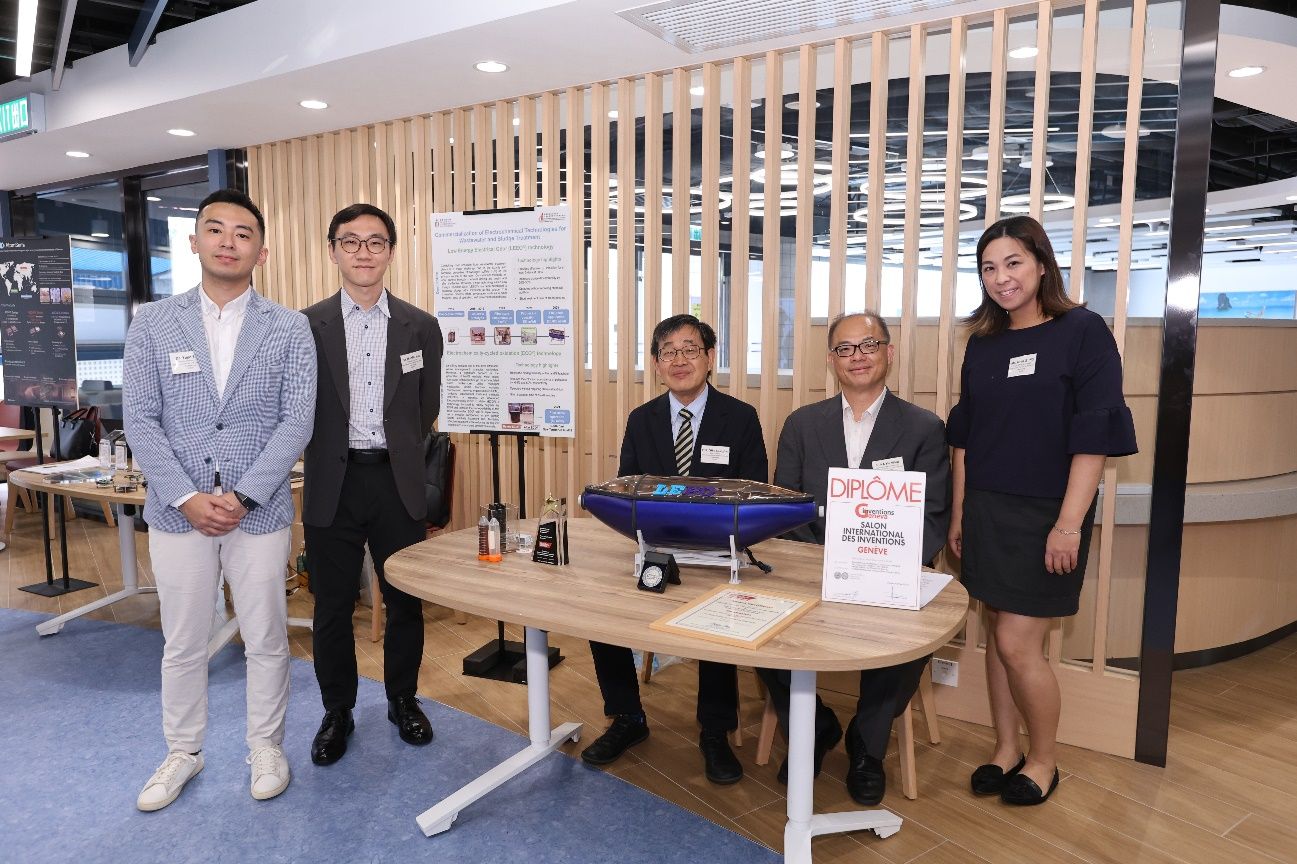
members,Dr. Huang Hao (2nd left), Ir. Ha Yiu-Wing (2nd right), Dr. Yugo SATO
(1st left), and Ms. Karen Leung (1st right)
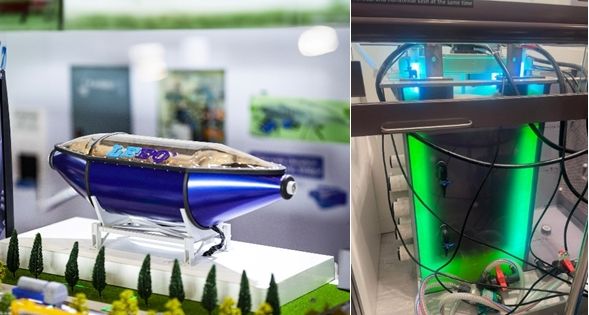
Project 4: Smart Ubiquitous Sensors with Unlimited Potential
A research team led by Prof. George Jie YUAN, Associate Dean of Engineering (Research and Graduate Studies), and Professor of the Department of Electronic and Computer Engineering has created three families of sensing chips. The high-performance chips are designed to achieve similar or better performance compared to leading US chip makers. Improving integration level is one of the team’s main focuses. They achieve this goal by integrating all analog circuit components and digital processor into one single chip. Its smaller than average size allows it to fit into much smaller electronic gadgets and save customers’ development costs.
Established by the team to commercialize their inventions, Atom Semiconductor Technologies Limited is mass-producing the chips and has secured major customers. The chip family consists of high precision data converter, digital temperature sensor, and interactive sensor can meet the needs of different IoT electronic customers in various sectors, such as consumer, medical, industrial, and ICT markets. AtomSemi’s chips are a perfect fit for wearables, consumer electronics, industrial electronics, smart homes, and the broader IoT field. The company also got funding from venture capital firms, and the RAISe+ funding will further support the company's development.
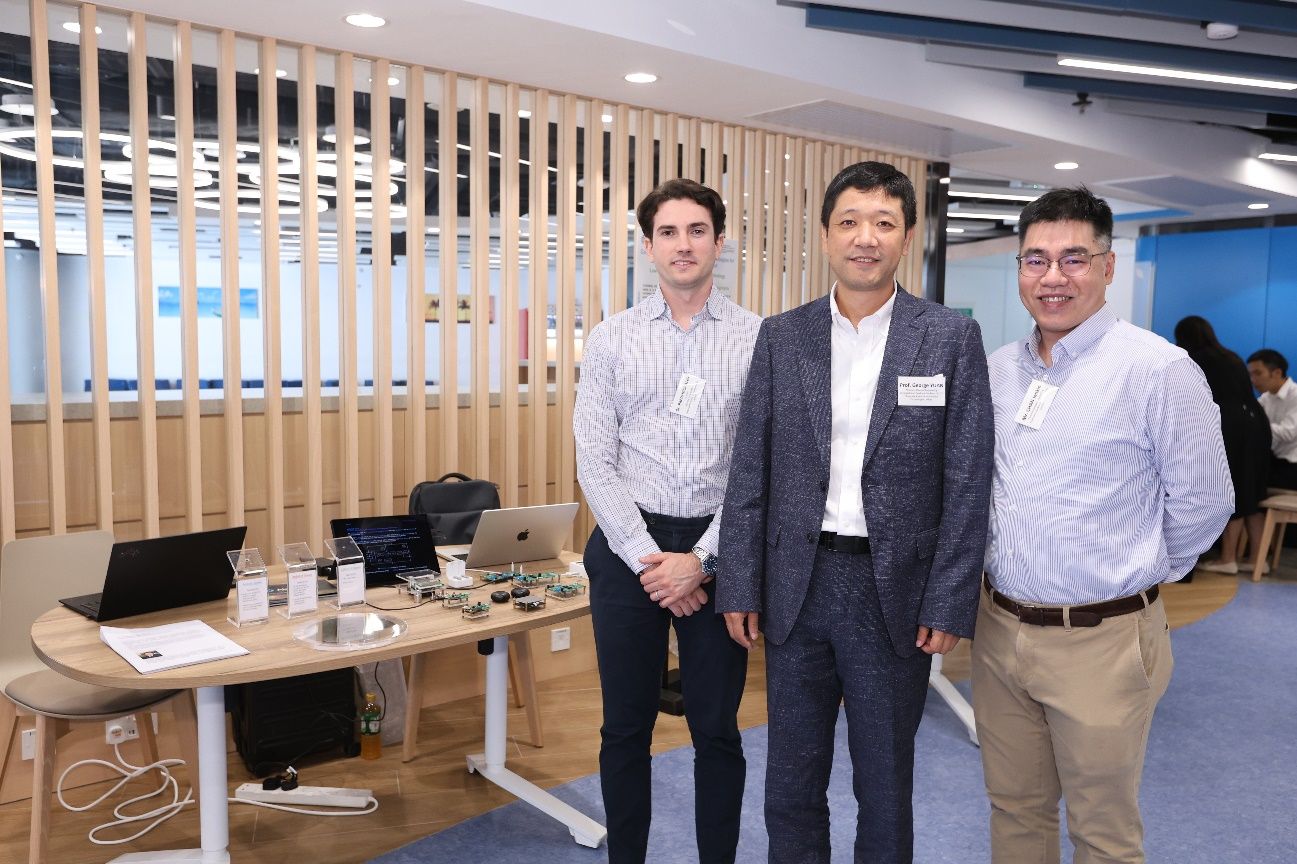
Mr. Jenkin Chan (right), and Dr. Pablo Morales (left).
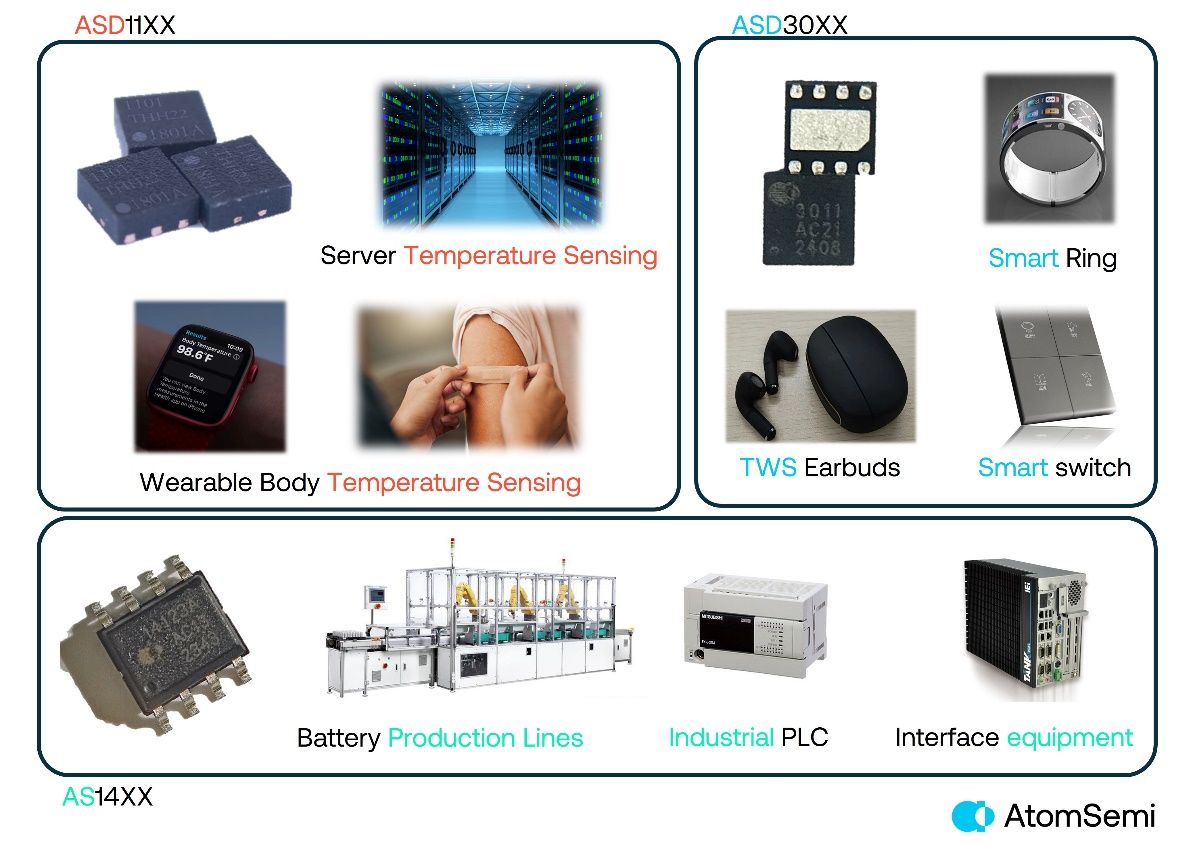
Prof. George Jie Yuan’s team have a wide range of applications, perfect
for integrating into wearable devices, consumer electronics, industrial
electronics, smart home products, and even for use in the Internet of
Things (IoT).
Project 5: AI Robotics for Precision Operations
Prof. SHEN Yajing of the Department of Electronic and Computer Engineering at the School of Engineering, led a robot research project that commercializes a high-precision, multi-dimensional, and flexible tactile sensing solution with low costs. It combines tactile sensors, tactile digital equipment, and robot dexterous operating terminals. The “Agile Executive Terminal for Robots” project uses neural network force calculation methods and patented hardware design, providing an ultra-fine digital tactile sensing solution that can improve control and accuracy, while increasing work efficiency and add value to users in different application scenarios.
This project showcases a series of three transformative flexible tactile sensors that can precisely measure the force signals of robotic fingertips from multiple directions, empowering it with sensations akin to human touch, with a wide range of technological applications. In manufacturing and assembly processes, tactile sensors help the production line automatically detect and adapt to delicate variations, enhancing efficiency and quality, and contributing to industrial automation. When tactile data analysis is combined with AI algorithm, sensory data can be analyzed and standardized to improve consistency of product texture; and robots can more accurately perceive their environment and understand human actions through, enabling safer and more natural human-machine interactions.
Besides getting government and capital investment for AgileReach Robotics, a start-up established by the team, they have already been cooperating with research institutes in Hong Kong, industrial automation production lines, medical health centers, and robot-related industries.
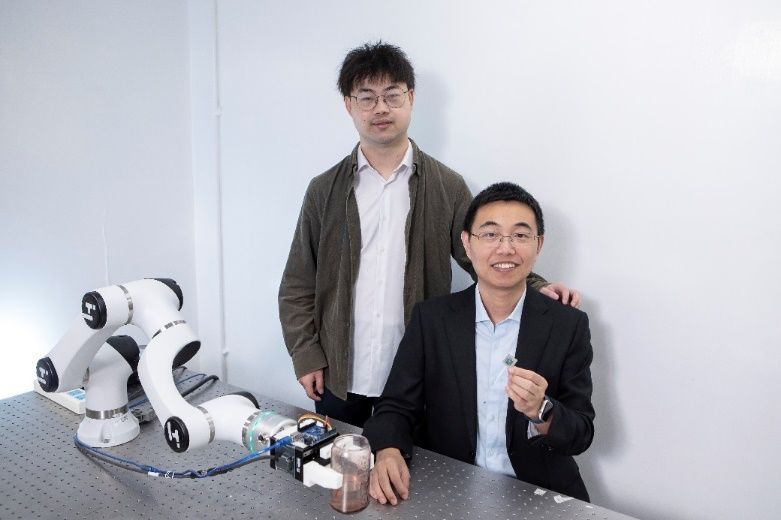
“Agile Executive Terminal for Robots”, one of the participating projects
of the first batch of RAISe+ Scheme, is led by Prof. Shen Yajing, Associate
Professor of HKUST Department of Electronic and Computer Engineering (right),
along with Dr. Yang Xiong, Research Assistant Professor of HKUST Department of
Electronic and Computer Engineering (right).
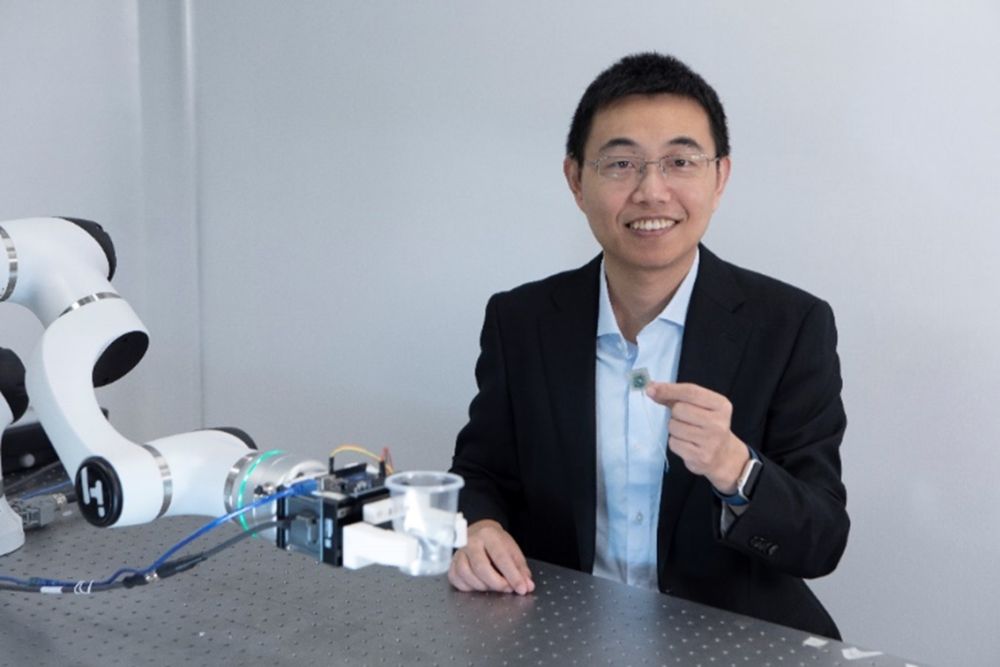
Robots”, flexible tactile sensors and AI algorithm enable accurate measurement
of the intensity of touch from multiple directions, thus empowering robots with
artificial tactile senses to perform precise operations. Along with the ability to
process language and visual messages, humanoid could properly fulfil tasks such as
“tidy up and pile the cups”.
Dr. Shin Cheul KIM, HKUST Associate Vice-President for Research and Development (Knowledge Transfer) said, “As a research-focused University, HKUST has placed great emphasis on promoting our knowledge transfer efforts. By sharing research outcomes with industry and business sectors, HKUST aims to translate our research achievements into practical solutions that can tackle global challenges. We are honored that five HKUST projects received new funding through the RAISe+ scheme, which demonstrated the University’s research excellence and fostered further developments of these projects. We look forward to strengthening the collaborations with industry and government to jointly promote innovation to support economic development.”
About the School of Science of HKUST
The School of Science (https://science.hkust.edu.hk) is committed to pursuing cutting-edge research, making groundbreaking discoveries, and establishing new research paradigms. Our quality and well-balanced education places particular emphasis on grit, curiosity, and creativity. The School promotes a vibrant and dynamic environment that emphasizes academic excellence, scholarship, innovation, and collaboration. The School’s five division and departments, namely Life Science, Chemistry, Mathematics, Ocean Science, and Physics, offer a broad range of academic programs and learning opportunities to students.
About the School of Engineering of HKUST
As the largest school within HKUST, the School of Engineering (SENG) (https://seng.hkust.edu.hk) is committed to providing holistic education and nurturing well-rounded graduates with a global vision, strong entrepreneurial spirit, and innovative thinking. It has a strong international reputation and consistently ranks high among major engineering schools around the world. In the Times Higher Education World University Rankings by Subject 2024: Engineering, HKUST was ranked No.33.
About HKUST
The Hong Kong University of Science and Technology (HKUST) (https://hkust.edu.hk) is a world-class research intensive university that focuses on science, engineering and business as well as humanities and social science. HKUST offers an international campus, and a holistic and interdisciplinary pedagogy to nurture well-rounded graduates with global vision, a strong entrepreneurial spirit and innovative thinking. Over 80% of our research work were rated “Internationally excellent” or “world leading” in the Research Assessment Exercise 2020 of Hong Kong’s University Grants Committee. We were ranked 3rd in Times Higher Education’s Young University Rankings 2024, and our graduates were ranked 29th worldwide and among the best from universities from Asia in Global Employability University Ranking 2023. As of September 2023, HKUST members have founded 1,747 active start-ups, including 10 Unicorns and 13 exits (IPO or M&A), generating economic impact worth over HK$ 400 billion. In the QS World University Rankings by Subject 2024, 12 subjects have been ranked in the top 50 globally, with "Data Science and Artificial Intelligence" securing the 10th position, the highest ranking among the local universities in the field.
Media Enquiry:
The Hong Kong University of Science and Technology | |
School of Engineering Ms. Celia LEE Mr. Joseph CHUK | School of Science Ms. Grace CHAN |
Copyright 2024 ACN Newswire. All rights reserved. www.acnnewswire.com






























